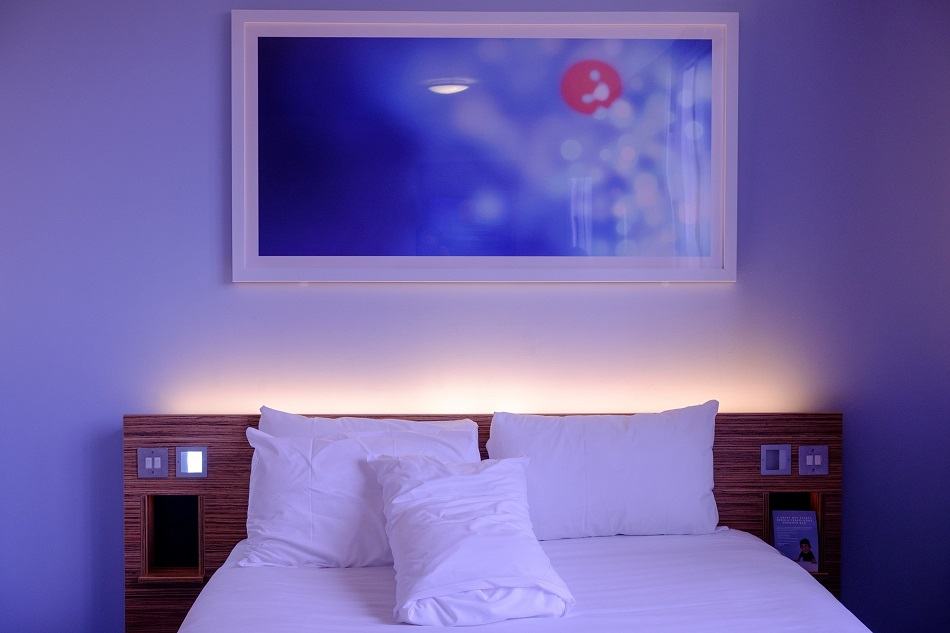
Photo credit: Stokpic.
It was around 2014 when Amit Saberwal thought to himself: “If I don’t become an entrepreneur now, I never will.” It wasn’t an easy decision either. He was working for Indian travel booking website MakeMyTrip, helping to build it up all the way to IPO and beyond.
MakeMyTrip went public on Nasdaq in 2010, debuting at US$14 per share and immediately seeing its value soar 89 percent. Amit was instrumental in growing the business and moved to Singapore to oversee its Southeast Asia expansion. But after eight and a half years with the company, the entrepreneurship bug won him over.
Venture debt is getting increasingly popular as a funding mechanism in Southeast Asia.
“It was a heart-wrenching decision,” he tells Tech in Asia. Not only he was walking away from a company he felt a part of, the move would affect both his and his family’s lifestyle as well. They would have to make it with less money and more uncertainty. Regardless, his wife and children stood by him and the journey began.
Amit started Commeasure, which provided tech for smaller hotels to grow their online presence. But soon he realized that small hotel owners in Southeast Asia needed a different kind of help.
“Even with the best tech, they would remain faceless hotels,” Amit says. “So we had to put a brand on them.” Singapore-headquartered RedDoorz launched in 2015 to help these same small hotels increase their traffic through an online platform that offers booking, payments, customer service, and loyalty programs. The startup ensures that rooms on its website are above a set standard and makes money out of successful bookings.
Debt vs equity
RedDoorz announced today it has raised US$1 million in venture debt from venture lending firm InnoVen Capital. It works with hotels across Indonesia, in Jakarta, Bali, Bandung, and Surabaya. Recently launched in Singapore, it’s now expanding to the Philippines as well.
Venture debt is getting increasingly popular as a funding mechanism in Southeast Asia’s startup ecosystems. It’s a type of loan companies can use to purchase equipment or just to refuel between VC fundraises.
See: Innoven Capital expands to Southeast Asia with $200 million venture debt for startups
“People look at it as free cash, but it’s not at all – it has to be paid back,” Amit says. He feels it’s a good way for a growing startup to balance between taking up debt and surrendering equity, as venture debt doesn’t dilute a company’s equity pool. “If you are at that level where you’re taking off and it makes sense to close a large equity round in the future, there’s no point in raising an interim venture round.”
Other startups InnoVen has financed in the region include stock image marketplace 123RF and digital media services provider Conversant.
RedDoorz has previously raised funding from Jungle Ventures, 500 Startups, the Asia Investment Fund of Susquehanna International Group, and the International Finance Corporation.
It plans to raise its series B round “sooner rather than later.” “We have enough cash right now so we will continue to execute,” Amit explains. “I think a quarter down the line we will be extremely well placed to get into that territory.”

RedDoorz guarantees clean linens and washrooms, satellite TV, wifi, mineral water, and toiletries in its rooms. Photo credit: Pixabay.
The quest for Southeast Asia
RedDoorz’s model is similar to Oyo Rooms in India (and recently in Southeast Asia as well) and Rocket Internet-backed ZenRooms, which is also active in the region. Other companies with similar products include Nida Rooms, Tinggal, and Airy Rooms.
It’s not uncommon for small hotels to work with more than one of these startups, just like a private-hire driver taking on passengers for both Uber and Grab, for example.
It’s no accident that Southeast Asia is so popular with these services. Amit was first exposed to it through his time at MakeMyTrip and he was conscious of the opportunity here. According to travel industry research firm Phocuswright, Southeast Asia’s hotel market is worth US$19 billion, he explains, while India’s is worth US$6 billion. So RedDoorz started out with Indonesia, the region’s largest market.
The startup decided early on it needed to focus its efforts in a narrow space to make sure its model worked. It wanted to test its product in a large metropolitan area – and it’s hard to get more metropolitan than Jakarta. It wanted a place with a lot of international travelers – Bali was just a plane ride away. And it needed a popular weekend destination – Bandung fit that bill.
“We thought, if we worked hard to crack the model this way, then it could be replicated elsewhere,” Amit says. Said model involved RedDoorz becoming a critical factor for the profitability of those hotels and playing a key part in introducing this segment of low-price hotels to consumers. That’s when the startup started growing “exponentially,” Amit says.
RedDoorz expects its Indonesian cities to be profitable by the end of 2017.
This more focused approach has served the company well and helps it distinguish itself from the multitude of competing service, Amit thinks. RedDoorz currently works with about 500 hotels. They are fewer than what some of its competitors are working with – Nida, for example, claims to have around 4,200 hotels on its service. ZenRooms had around 1,000 across its markets as of February. But the idea is, RedDoorz can zero in on those hotels and improve its offering without breaking the bank.
“We were never tempted to go out to too many places,” Amit says. RedDoorz expects its Indonesian cities to be profitable by the end of 2017. Amit doesn’t share specific figures, but says the startup’s revenue grew 12-fold in 2016.
It remains to be seen how many players can survive the competition. Nida Rooms, for example, was facing trouble in September last year, although it raised a new round of funding eventually.
Amit feels it’s a matter of time before larger hotel chains notice this segment of low-price hotels and guest rooms and the startups that are trying to work with them. “I think if they’re not, they will pretty soon – the hospitality industry has not evolved for the past 50 years,” he says. Companies like Marriott and Accor, which acquired hotel enterprise software builder FastBooking in 2015, are getting increasingly progressive, he thinks.
For its part, RedDoorz plans to figure out more services and new sources of revenue when the time is right. “It’s getting easier for us now than it was when we started,” Amit says.
This post RedDoorz raises $1m in venture debt to grow in the crowded budget hotel space appeared first on Tech in Asia.
from Tech in Asia https://www.techinasia.com/reddoorz-venture-debt-innoven-capital
via IFTTT
No comments:
Post a Comment